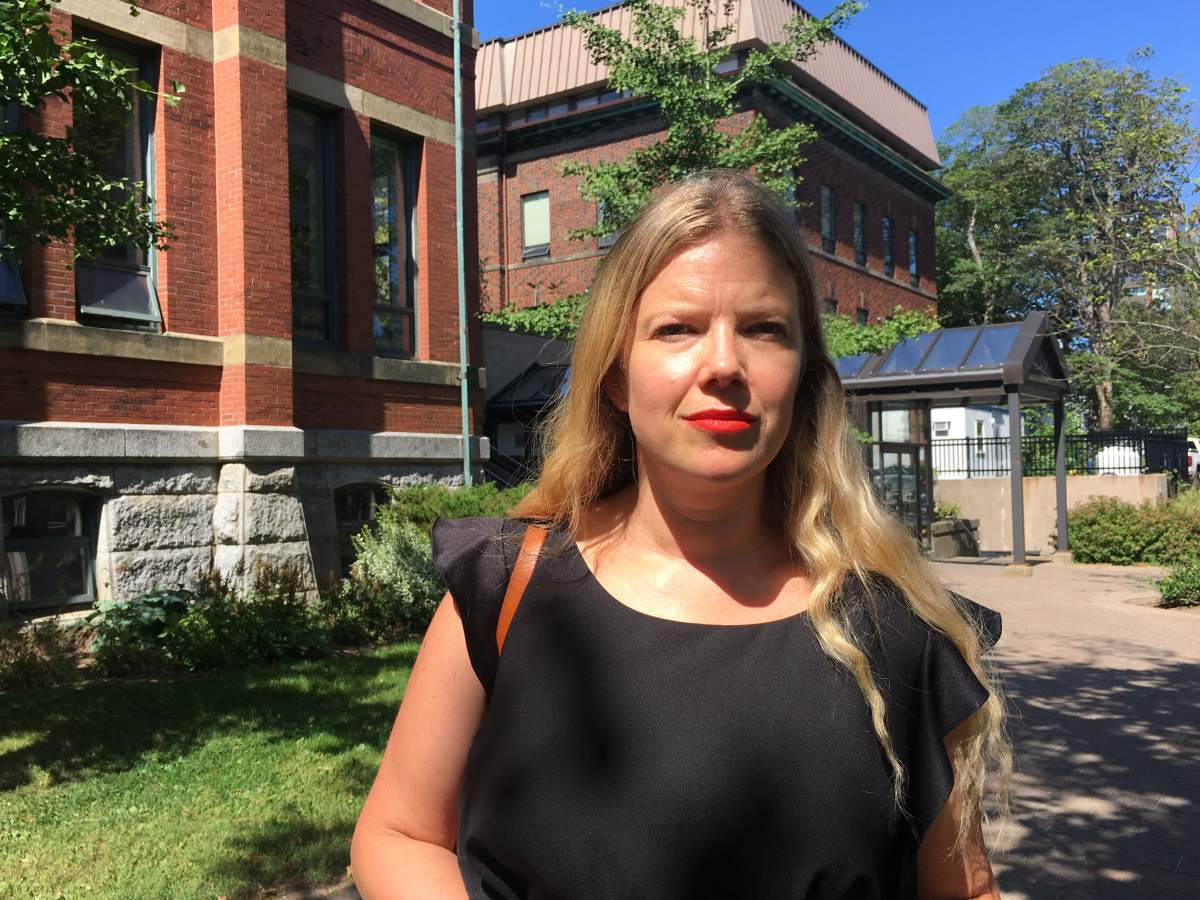A health-care and justice organization is renewing its call to end birth alerts in Nova Scotia, a controversial practice that involves child welfare services flagging “at-risk” expectant parents and potentially removing the baby from the parent’s care after it’s born.

The practice has been criticized for targeting Indigenous parents and other marginalized groups, and Nova Scotia is one of the last provinces that hasn’t yet put an end to it.
“Of course, it is people who are oppressed and marginalized in our racist and colonial society that experience that risk,” said Martha Paynter, a registered nurse and the founder of Wellness Within.
“So birth alerts are disproportionately experienced by Indigenous people, African Nova Scotians here in Nova Scotia, people who experience poverty, young people and people who were in the foster care system themselves.”
If an expectant parent is flagged by the Department of Community Services, the hospital or health-care provider delivering the baby is required to let the department know when their baby is born.
Banning birth alerts ‘a very bare minimum’
Birth alerts have now been axed in most Canadian provinces and territories, though they are still issued in Quebec and are under review in New Brunswick and Nova Scotia.
- Queen’s University students stranded in Doha after Iran attack shuts down airspace
- Attack on Iran triggers global flight disruptions, impacts Canadian travellers
- WWE Hall of Fame ring belonging to wrestling legend recovered after stolen
- Carney calls for protection of civilians as U.S., Israel strike Iran
This week, Newfoundland and Labrador announced it would put an end to birth alerts, citing recommendations from the Truth and Reconciliation Commission of Canada (TRC) and the National Inquiry into Missing and Murdered Indigenous Women and Girls (MMIWG).
The final report from the MMIWG inquiry called on governments and child-welfare agencies to stop birth alerts, and the TRC called for a reduction in the number of Indigenous children in institutional care.

Get daily National news
Paynter also said with the recent discovery of nearly a thousand unmarked graves at residential school sites in the country, Nova Scotia “has to make efforts to do some kind of reparations” and work toward reconciliation.
“It seems like a very bare minimum to at least follow in the footsteps of the majority of provinces and territories in this country and ban this practice,” said Paynter.
“It is clearly racist, clearly discriminatory and for which there is no evidence of benefit.”
According to Statistics Canada, nearly one-quarter of all children in foster care in Nova Scotia are Indigenous, despite the fact that only six per cent of children are Indigenous.
Paynter said the removal of a child from a parent’s care is “extremely traumatic” for both the baby and the parent.
Babies will lose out on the opportunity to gain attachment to their parents, along with the benefits that come from breastfeeding.
Mothers, meanwhile, may be less likely to seek pre-natal care in the future, said Paynter.
“So they do not associate health-care services with support or with care, but rather with surveillance and harm,” she said.

Paynter would like to see more resources put toward ensuring that a parent is able to care for their child, rather than simply removing the infant.
This can come in the form of improved pre and post-natal care, with special attention and supports for younger and financially challenged parents, and culturally safe supports for Indigenous and African Nova Scotian parents.
As well, Paynter said Nova Scotia needs to work toward addressing the province’s “absurd and humiliating” level of child poverty, noting the province has the third-highest rate of child poverty in the country.
“How can we live with ourselves while children are living in poverty?” she said.
“So these are the things that we need to be focusing on – not on ripping children from their mother’s breast at birth.”
According to the province, there were 100 birth alerts issued in 2018-19, 95 in 2019-20 and 80 in 2020-21.
Province ‘working toward’ ending birth alerts
In an email, Community Services spokesperson Carley Sampson said the province is “working toward ending the use of birth alerts.”
She said the department will engage with community organizations to discuss other supports that will need to be put in place, and Mi’kmaw and African Nova Scotian leaders will play a “central role” in these sessions.
“These engagement sessions will establish a process for planning and information sharing with expectant parents and community partners,” she said.
“Following these engagement sessions, DCS will finalize the process to end birth alerts – a process that will honor expectant parents, their families and communities, while ensuring the safety and protection of the child.”
On Wednesday, Sampson said they are currently preparing the rollout for these sessions.
–With files from The Canadian Press









Comments
Want to discuss? Please read our Commenting Policy first.